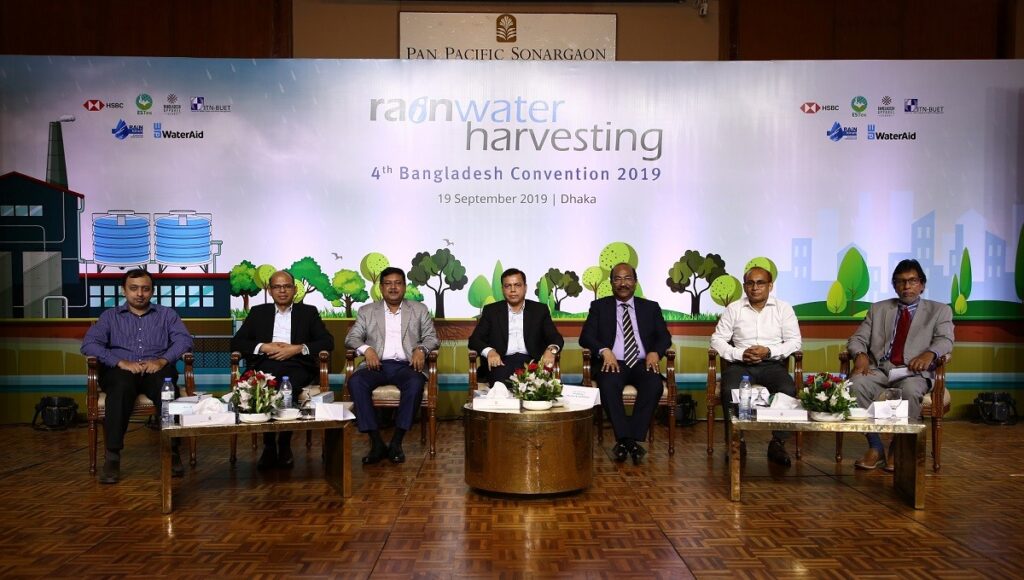Dhaka, Sept 19 – Bangladesh receives on an average 1500 mm rainfall every year and this is adequate to meet most domestic needs, experts said on Thursday. They were speaking at the 4th Rainwater Harvesting Convention held at a city hotel. They also opined that by collecting rainwater for reuse and recharging fast-depleting groundwater sources, water scarcity can be reduced while increasing resilience against climate change – reducing water-logging and helping restore water-related ecosystems.
With proper design and management, Rain Water Harvesting (RWH) system can provide acceptable water quality for drinking in households and industrial uses in both rural and urban areas, said Prof Dr Tanvir Ahmed of the Department of Civil Engineering, Buet.
Rainwater harvesting is a practical, cost-effective and sustainable solution to some of the water issues that the country is currently facing, he added.
WaterAid in collaboration with HSBC, RAIN Forum, ESTex, BAE and ITN-Buet organised the convention.
The first phase of the daylong convention was chaired by Prof Dr M Ashraf Ali, Director of ITN-Buet, and the second phase by Dr Kazi Matin Uddin Ahmed, Professor of the Department of Geology, University of Dhaka.
Md Shahid Ullah Khandaker, Secretary of the Ministry of Housing and Public Works, was present at the convention as the chief guest.
The convention ended with a panel discussion on the need to address the country’s emerging water crisis and the role of rainwater harvesting in achieving SDG 6 by 2030.
Md Shahadat Hossain, Chief Engineer of Public Works Department; Brigadier General MA Mohy, Chief Engineer of Health Engineering Department; ASM Raihanul Ferdous, Chief Engineer of Rajuk; and Engineer Mohammad Shamim Akhter, and Shyamal Datta, Editor, Bhorer Kagoj, among others, took part in the discussion.
Over 100 participants at the convention discussed and debated on policies, challenges and prospects of rainwater harvesting. – UNB




